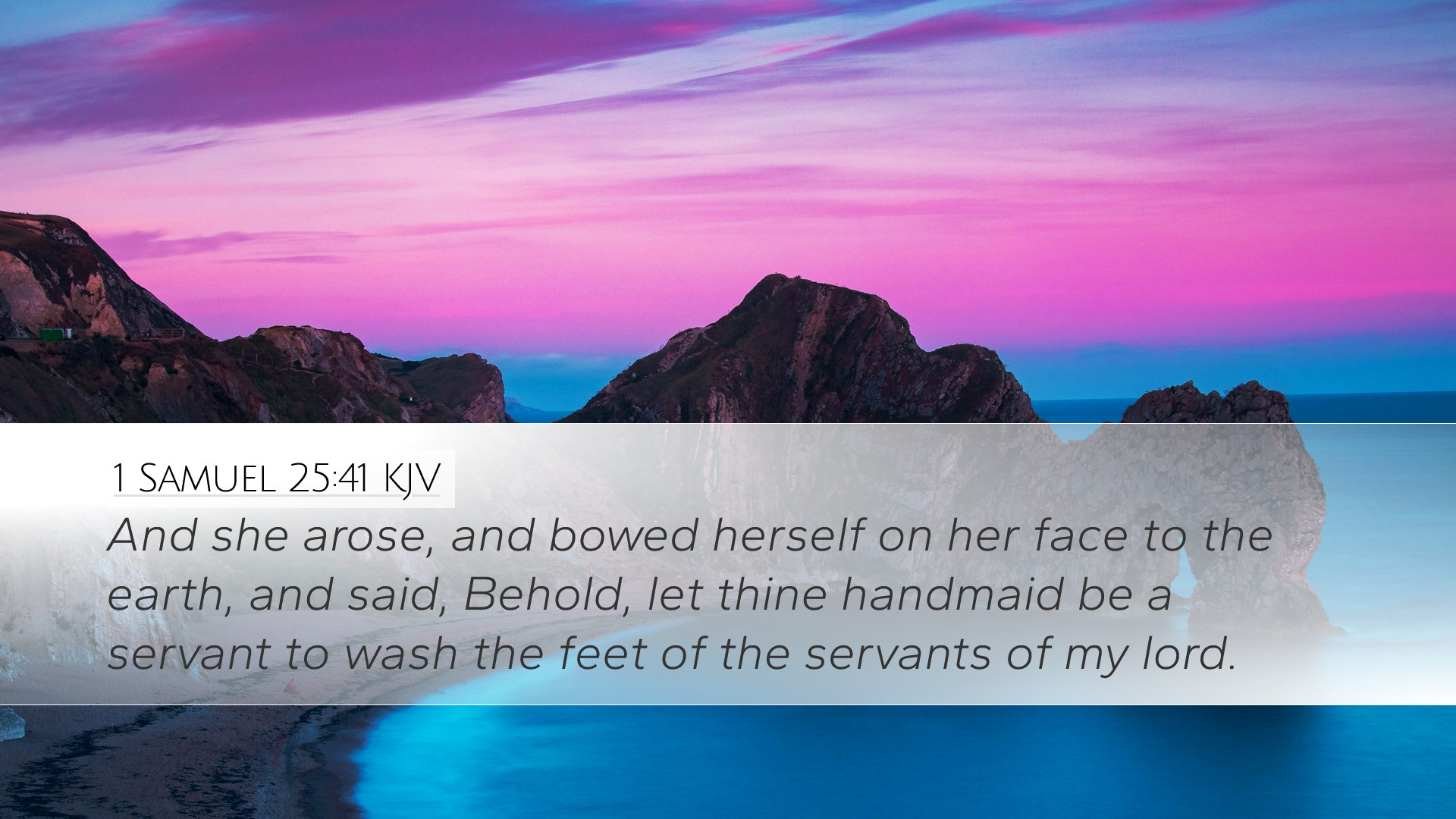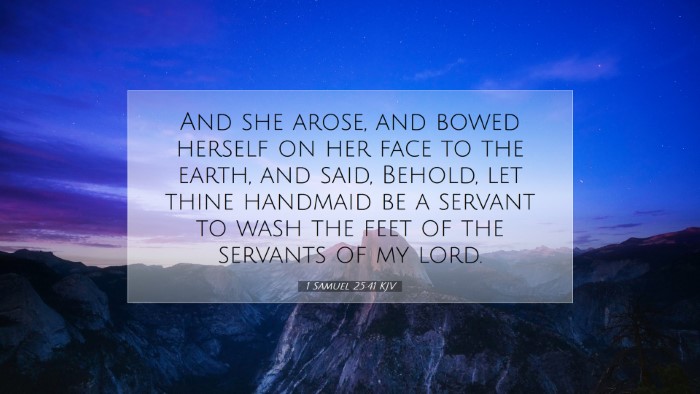1 Samuel 25:41 - Commentary Summary
This verse captures a significant moment in the narrative involving Abigail, Nabal, and David. It elucidates themes of humility, submission, and the complex dynamics of human relationships in the face of conflict.
Text of the Verse
“And she arose, and bowed herself on her face to the earth, and said, Behold, let thine handmaid be a servant to wash the feet of the servants of my lord.”
Contextual Analysis
- Historical Background: During this period, the tribes of Israel were in a state of unrest and transition. David was anointed king but still living as a fugitive, necessitating his reliance on others.
- Character Study: Abigail represents wisdom and humility. Her actions show an understanding of her husband's failings and a desire to avert disaster.
Theological Insights
The humility displayed by Abigail in bowing down before David signifies not only her submission to David's authority but also a deeper spiritual truth regarding service and submission to God's will.
- Servanthood: Abigail's willingness to serve reflects the Biblical principle that true greatness is found in humility and service to others (Mark 10:43-45).
- Divine Providence: The events leading up to this moment indicate God’s hand in guiding relationships and situations to fulfill His purposes, despite human shortcomings.
Commentary Excerpts
The following insights from notable commentaries provide depth to our understanding of this passage:
- Matthew Henry: asserts that Abigail’s action was prudent and timely, pointing out how her intercession not only saved her household but also illustrates a model of peace-making. He highlights that true wisdom often rises to the occasion, even in dire situations.
- Albert Barnes: emphasizes the significance of Abigail's humble disposition. He notes that her actions demonstrate the art of diplomacy grounded in respect and acknowledgment of authority, as she approaches David with sincerity and grace.
- Adam Clarke: describes the cultural implications of foot-washing as a sign of servitude and submission. Clarke further expounds on Abigail’s humility as a corrective measure to her husband Nabal’s prideful arrogance, showcasing a contrast in character that aligns with God’s expectations of righteousness.
Application for Today’s Believers
This verse invites us to reflect on our attitudes of humility and service in our daily lives. It encourages believers to consider how they can embody these virtues in interactions with others, especially in leadership or conflict situations.
- Embracing Humility: Believers are reminded of the call to lower oneself for the sake of others, reflecting Christ's humility.
- Conflict Resolution: Abigail’s approach teaches us about the potential for wise communication and peacemaking in resolving conflicts.
- Recognizing God’s Hand: We are encouraged to see God’s providence in our lives, understanding that He often works through our circumstances and relationships to accomplish His purposes.
Conclusion
1 Samuel 25:41 serves as a profound reminder of the value of humility, the power of intercession, and the importance of serving others. Abigail’s example inspires us not only to act wisely in turbulent times but also to remain humble before God and each other. Through her actions, we learn the significance of being a servant leader, staying attuned to God’s leading, and recognizing the worth of every individual in His creation.


